Defence Secretary Gavin Williamson tells Russia to 'shut up and go away'
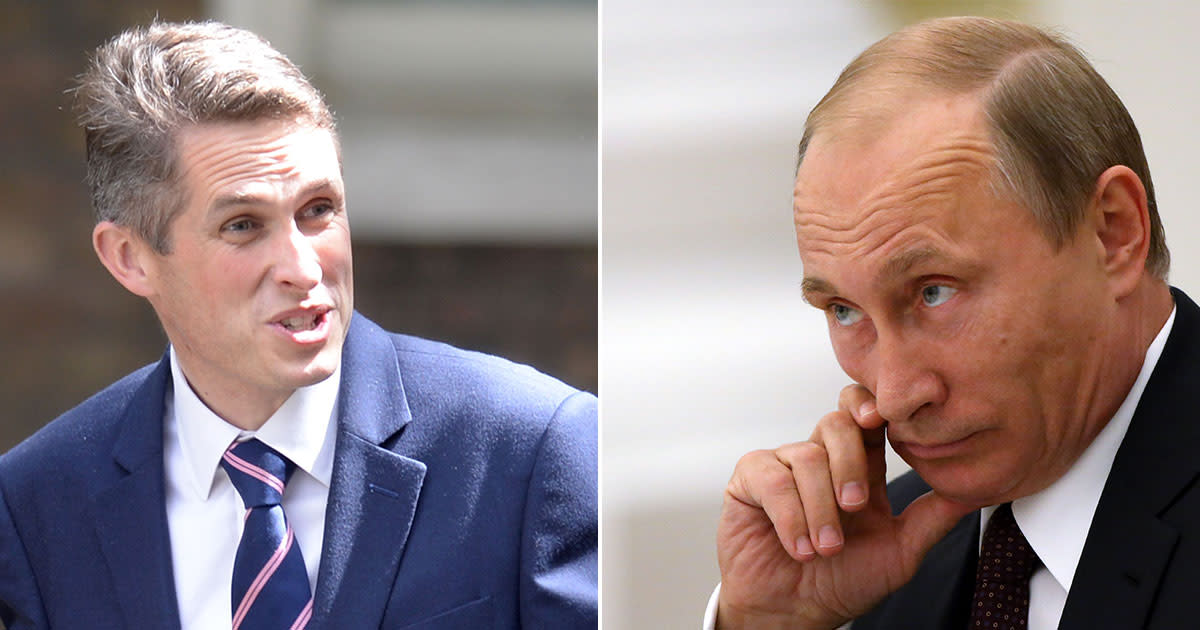
Defence Secretary Gavin Williamson has boldly claimed that Russia should ‘shut up’ as he faced questions over the threat of a new Cold War.
When quizzed about relations between Russia and the UK, he responded: ‘Well let’s face it, relations ain’t good are they… It’s feeling exceptionally, exceptionally chilly.’
He added: ‘Frankly Russia should go away, it should shut up’.
It comes as the Prime Minister visited Salisbury on Thursday to speak to emergency services, members of the public and local businesses.

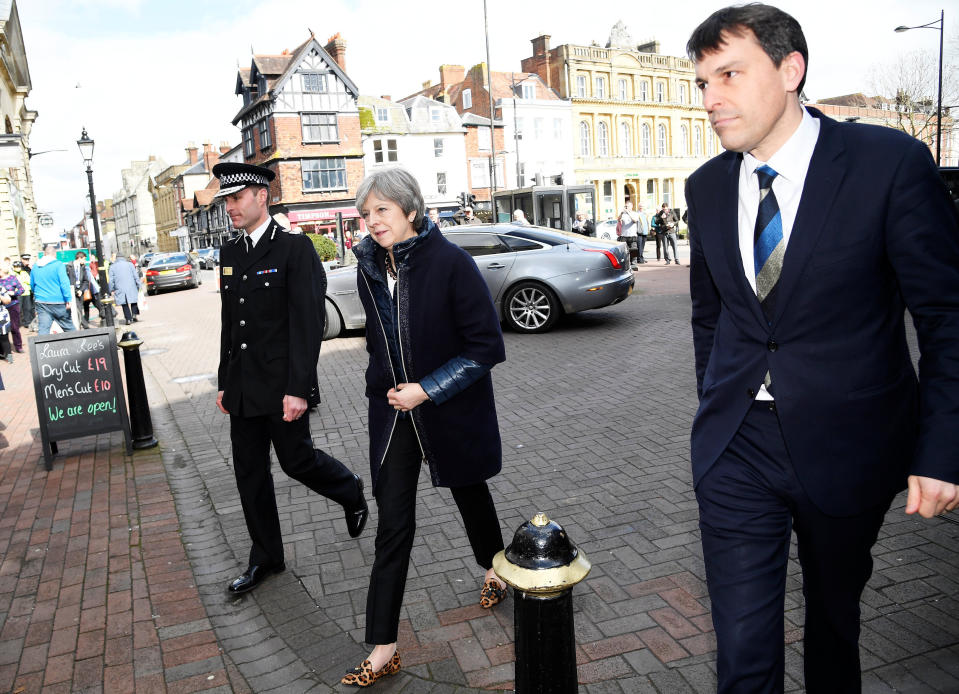
She will also receive a briefing from Public Health England.
Russian foreign minister Sergei Lavrov, meanwhile, earlier warned Moscow will expel British diplomats ‘soon’ after Mrs May announced the biggest expulsion of Russian embassy staff since the Cold War.
The stark remarks from the Defence Secretary came after he delivered a keynote speech in Bristol and faced questions about the poisoning of former spy Sergei Skripal.
SPY POISONING: LATEST ANALYSIS FROM YAHOO UK
‘Don’t threaten us’: Russia’s extraordinary nuclear warning to May
21 people have been treated for exposure to nerve agent that poisoned Russian spy
Russian MP accuses UK of trying to kill Sergei Skripal and compares Theresa May to Adolf Hitler
Almost 200 troops sent to Salisbury to help police after poisoning of Russian spy
Theresa May expels 23 Russian diplomats from UK over spy poisoning allegations
‘What we will do is we will look at how Russia responds to what we have done’, he said.
‘It is absolutely atrocious and outrageous what Russia did in Salisbury. We have responded to that. Frankly, Russia should go away and should shut up.’
As he called for the whole country ‘to unite’ with the Prime Minister, Williamson pleaded: ‘You see it in the House of Commons and you listen to members of Parliament from all parties on the backbenches.
‘That is what they are wanting to see: Britain standing together against this great threat.’
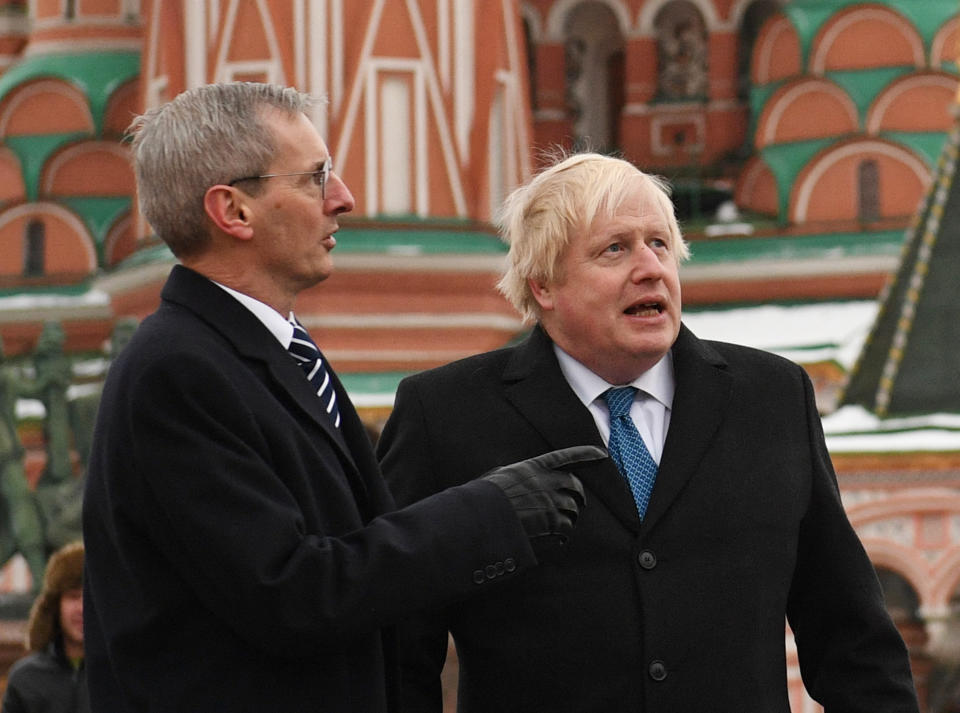
Frankness appreciated! pic.twitter.com/5X4xtun1cy
— Russian Embassy, UK (@RussianEmbassy) March 15, 2018
As the diplomatic fall-out from the Salisbury spy poisoning scandal continued,
Boris Johnson confirmed the UK will submit a sample of the nerve agent to the Organisation for Prohibition of Chemical Weapons (OPCW) for it to carry out its own tests.
The US threw its diplomatic weight behind the UK on Thursday, saying it ‘stands in solidarity with its closest ally’.
Mr Johnson said the UK’s response means Russia’s intelligence capabilities in the country had been ‘basically eviscerated’ for decades.
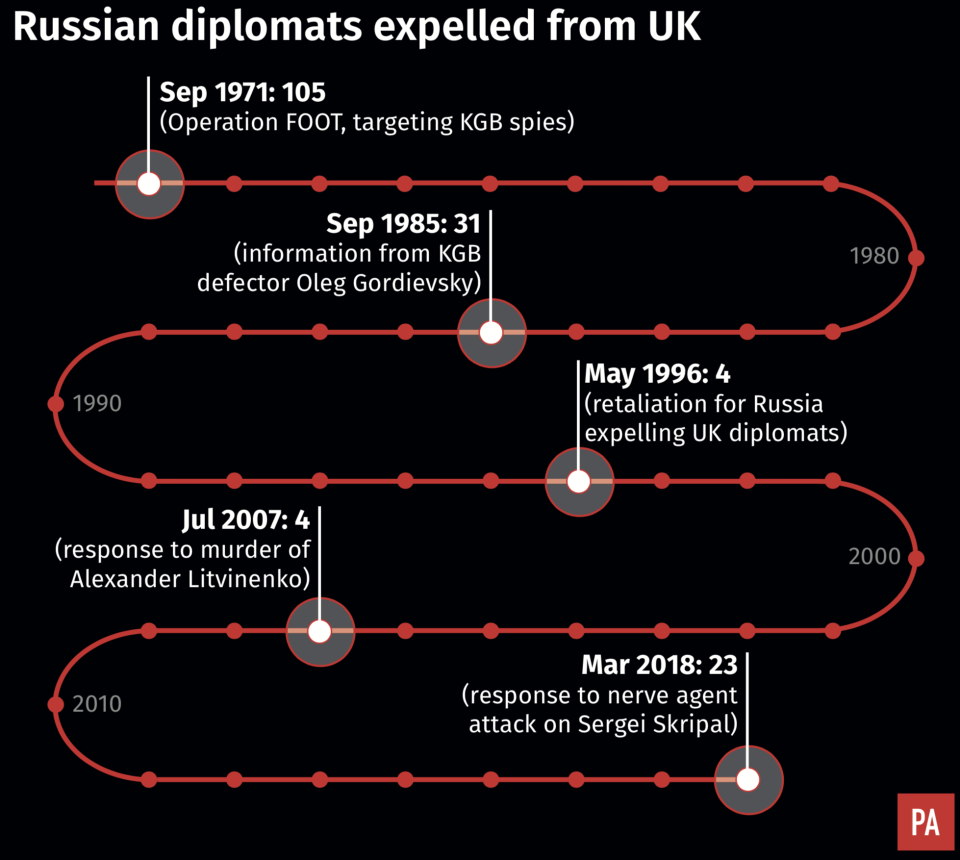
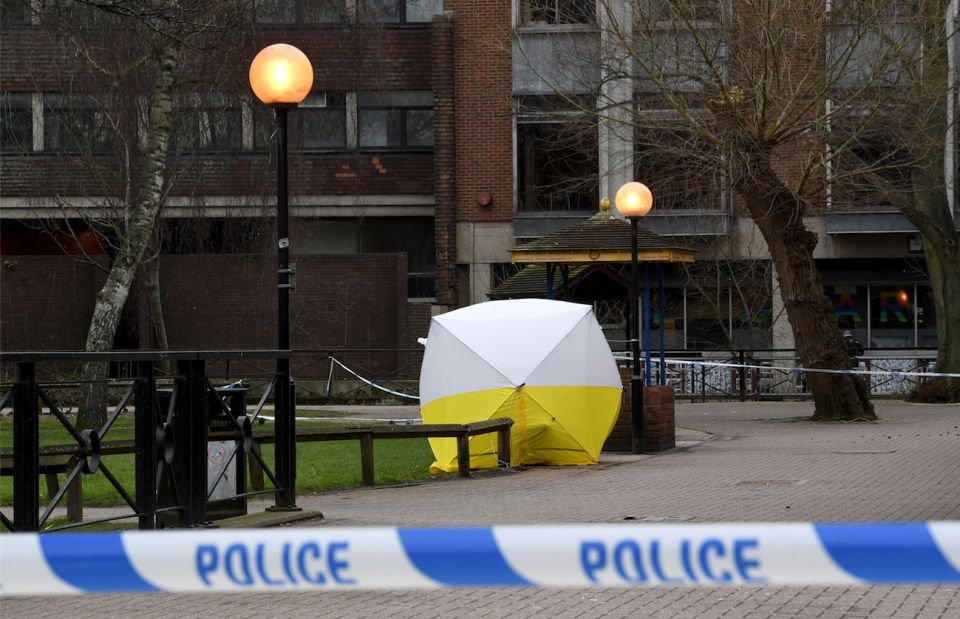
The Foreign Secretary claimed Russian President Vladimir Putin wanted to send a message to any defecting Russians that ‘you’re going to die’.
Announcing sanctions in the House of Commons, the PM said the attack on ex-spy Sergei Skripal and his daughter Yulia amounted to ‘an unlawful use of force by the Russian state against the United Kingdom’.
MOST POPULAR TODAY ON YAHOO
Freezing weather expected this weekend as Met Office issues yellow warning for snow and ice
Watch: Shocking moment gang member grabs pen and attacks witness in court before being shot dead
Memorial benches installed by relatives of the deceased ‘are turning beauty spots into graveyards’
Mrs May announced the suspension of high-level contacts with Russia, including a boycott of this summer’s World Cup by Government ministers and members of the royal family.
She said Russian state assets will be frozen ‘wherever we have the evidence that they may be used to threaten the life or property of UK nationals or residents’.
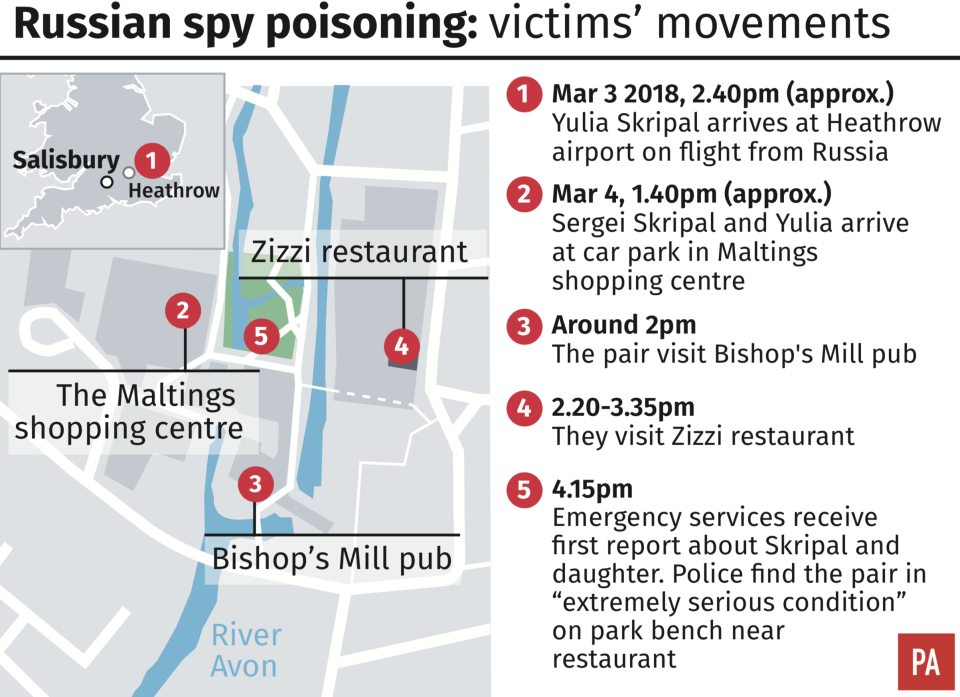
Twenty-three Russian diplomats identified as undeclared intelligence officers have been given a week to leave the UK, in the largest mass expulsion since 31 were ordered out in 1985 following the defection of double agent Oleg Gordievsky.
Mr Corbyn drew criticism for his stance on the Salisbury incident after his spokesman said the history of the use of information from UK intelligence agencies is ‘problematic’ and refused to say that the Labour leader accepted the Russian state was at fault.
The spokesman’s comments prompted Labour backbencher John Woodcock to table an Early Day Motion ‘unequivocally’ accepting the ‘Russian state’s culpability’ for the attack, and supporting ‘fully’ the statement made by Mrs May in the Commons.

 Yahoo News
Yahoo News 

